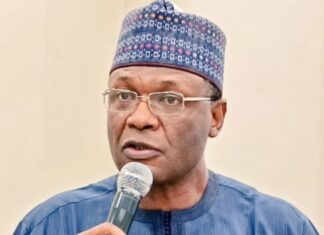By Jeph Ajobaju, Chief Copy Editor
Nigeria’s economy, now in recession, is projected by the World Bank to grow 1.1 per cent in 2021, against the 2.4 per cent average growth the Centre for Economics and Business Research (CEBR) projects for the country between 2021 and 2025.
The CEBR, a consultancy based in the United Kingdom, predicts in its annual world economic league table of the growth prospects of 193 countries that Africa’s largest economy will slow to 2.2 per cent growth in the 2026-2035 period.
In its own forecast, the World Bank expects growth in Nigeria to resume at 1.1 per cent in 2021 provided lower oil production quotas do not disrupt the outlook.
The global economy will likely rebound 4 per cent in 2021, according to the World Bank, nearly 3 per cent larger than the projection for Nigeria.
The World Bank said in its January 2021 Global Economic Prospects: “The global economy is expected to expand 4 per cent in 2021, assuming an initial COVID-19 vaccine rollout becomes widespread throughout the year.
“A recovery, however, will likely be subdued, unless policy makers move decisively to tame the pandemic and implement investment-enhancing reforms.”
The World Bank urged policy makers to focus on improving business environments, and increase labour and product market as the pandemic has severely dampened the global economy.
“While the global economy appears to have entered a subdued recovery, policymakers face formidable challenges – in public health, debt management, budget policies, central banking and structural reforms – as they try to ensure that this still fragile global recovery gains traction and sets a foundation for robust growth,” said World Bank Group President, David Malpass.
“To overcome the impacts of the pandemic and counter the investment headwind, there needs to be a major push to improve business environments, increase labour and product market flexibility, and strengthen transparency and governance.”
The World Bank stressed that the 2020 economic fallout was slightly less severe than previously projected, citing shallower contractions in advanced economies and a more robust recovery in China.
However, disruptions to activity in emerging economies were “more acute than expected,” it added.
The World Bank estimated Nigeria’s economy to have contracted 4.1 per cent in 2020, as the effects of coronavirus impacted economic activities in all sectors across the African region.
“In South Africa, where economic activity was on weak footing before COVID-19, output is estimated to have fallen 7.8 per cent last year. The country suffered the most severe outbreak of the pandemic in the region and underwent strict lockdowns that brought the economy to a standstill.”
Oil exporters in Africa grappled with sharply lower prices, the World Bank said, but noted that contractions in agricultural commodity exporters were less steep.
“Growth in the region is forecast to rebound moderately to 2.7 per cent in 2021.
“Growth in Nigeria is expected to resume at 1.1 per cent in 2021. Activity is nevertheless anticipated to be dampened by low oil prices, OPEC quotas, falling public investment due to weak government revenues, constrained private investment due to firm failures, and subdued foreign investor confidence.
“In South Africa, growth is expected to rebound to 3.3 per cent in 2021. An expectation of weak growth momentum reflects the lingering effects of the pandemic and the likelihood that some mitigation measures will need to remain in place.”
Nigeria’s Gross Domestic Product (GDP) in real terms declined -3.62 per cent (year-on-year) in Q3 2020, marking a full-blown recession and second consecutive contraction from -6.10 per cent recorded in Q2 2020.
However, the government says the latest recession will be short-lived and expects a return to positive growth soon unlike during the 2016 recession.













